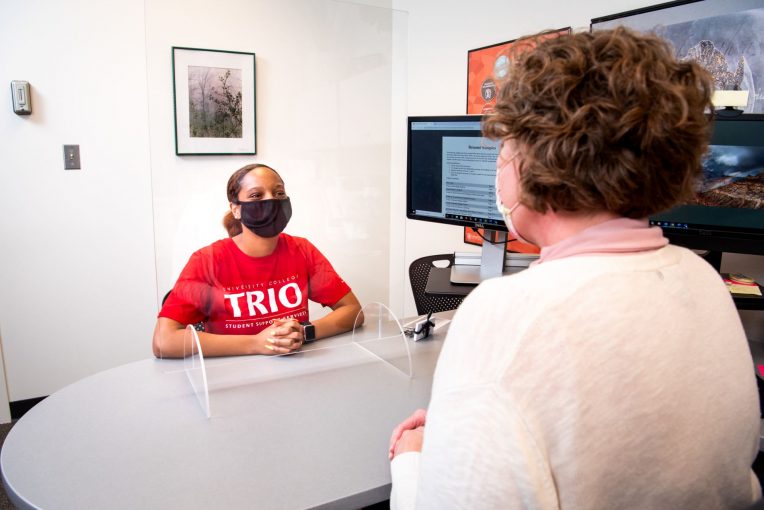According to the National Association of Colleges and Employers, there are 10 things you can do early on in college to make yourself marketable and begin planning for your career.
Keep your grades up
Employers and graduate schools want candidates with good grades. Doing well academically not only showcases your knowledge but indicates a strong work ethic. If you find you are having trouble with your coursework, connect with your instructor or contact University College for assistance.
Identify your interests, skills, values, and personal characteristics
The first step to clarifying your career goals is to go through a process of self-assessment. Visit Career Services to meet with your career advisor, or take advantage of FOCUS 2 and other self-assessment resources.
Actively explore career options
Find a career that enriches your life. Actively explore careers by connecting with professionals in occupations that interest you. Career Services can help you connect with alumni and other professionals to learn about their careers. You can also attend a career-related program and fair, conduct informational interviews, or register to take the IDS-106 Career Choice class where you can explore careers more in-depth.
Become active in extracurricular activities and organizations
Active involvement in activities and clubs on campus is highly valued by employers and graduate schools. Joining a club is fine, but becoming active within that club is what matters most. Become a leader, hold an executive position, or coordinate an event. Your service will also allow you to explore your strengths. You may even discover new interests and identify new career options.
Get involved
Consider giving back to your community and discover ways to serve the University. Students often view community service as a task or chore. However, many find that after they’ve served, their work was very personally rewarding! Recruiters want to know that you’ve volunteered to help in your community. Connect with the Center for Civic Engagement for opportunities.
Develop your computer skills
Take advantage of the computer courses and workshops your college offers. You can learn a lot by just experimenting with different software packages on your own. You could develop your own webpage or web-based portfolio. There are many web-design software tools that make it really easy to develop your own web page.
Develop your writing skills
Being able to write well is an important transferable skill to have as a college student and future professional. Work at developing your writing skills. Take advantage of opportunities to practice writing. Visit the Julia N. Visor Academic Center and have them take a look at your papers from time to time. The first impression you give to recruiters is typically your cover letter or personal statement so you need them to be well-written.
Complete at least one internship in your chosen career field
Internships are a springboard to employment and getting into graduate school programs. Many recruiters hire previous interns when they need to fill entry-level jobs. In addition to making yourself more marketable, internships and micro-internships are a great way to explore careers and determine whether or not they are for you.
Gain an appreciation of diversity through study abroad programs and foreign language courses
To be successful at work and in your life, you need to know how to relate to people and cultures different than your own. Take advantage of Study Abroad and courses relating to equity, diversity, and inclusion. The Multicultural Center develops educational and supports resources that are at your disposal.
Utilize Career Services
Career Services can assist you throughout your entire college career, including:
- Exploring careers
- Obtaining an internship
- Writing a resume and cover letter
- Developing your interviewing skills
- Identifying your skills, interests, and values
- Developing a job-search or graduate school plan
- Connecting with prospective employers through career fairs, on-campus recruiting, and more
- Connecting you with alumni mentors
Written by Bob Orndorff, courtesy of the National Association of Colleges and Employers

